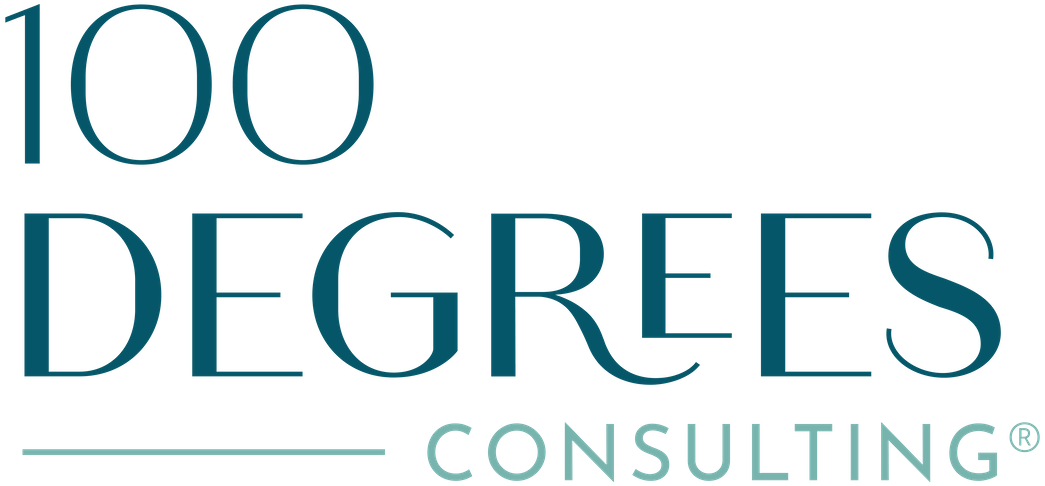Episode 62: Building a Thriving Team
Transcript Episode 62
Stephanie Skryzowski
Welcome to the 100 Degrees of Entrepreneurship podcast the show for purpose driven entrepreneurs who want to get inspired to step outside of your comfort zone. Expand it to your purpose and grow your business in a big way. I’m your host, Stephanie Skryzowski, a globe trotting CFO whose mission is to empower leaders to better understand their numbers to grow their impact and their income. Let’s dive in!
Hey, everybody, welcome back to 100 degrees of entrepreneurship. I’m Stephanie and I’m really excited to talk to you today. Well, like I always am, I feel like I always say that. But the topic today is all about your team. So, I have learned a lot of lessons about building a team. I’ve learned those lessons the hard way, the easy way, and just like the normal way over the past six or seven years of building my business. And I’ve compiled a lot of those lessons that I have learned into this podcast episode today.
Just a fair warning, I’ve got like six pages of notes. And to be honest with you, a lot of times I jump onto record these episodes, and I don’t have a lot of notes. I have a rough outline, and I know what I want to talk to you about. But I don’t have a ton of notes. Today, I do. So I really believe that building a team is what is going to set you apart and get your business to the next level of revenue of notoriety of success.
But it can also bring you down. I’ve made so many mistakes along the way. Maybe I’ll do a recorded episode of like just the mistakes I’ve made. That’ll be fun to relive. Just kidding. But I have learned a lot along the way. I am so grateful for the team that I have today because it has allowed our business to do so much more and have an even greater impact than we could have if it was just me.
We’re going to talk about a bunch of lessons along the way. From before you hire to what to do during the hiring phase, to how to keep your team happy once you have them on board. So let’s dive in. We’ve got a lot. So first of all, why is building a team important? Well, I had a realization back last summer, I took a two week vacation to Maine. That’s the longest vacation I have ever taken before. And admittedly, I wish I didn’t work at all while I was there.
But admittedly, I did had a couple meetings and a new client. And so I didn’t really feel like I could entirely turn off, but for the most part I did. I realized when I got home was that business didn’t stop, it didn’t really even slow down. When I was out of the office, or really when anyone on the team is out of the office, I was out for two weeks. Right after that our operations manager was out and right after that a CFO was out. And the wheels just kept on turning.
This was not the case a couple years ago. And has not been the case for a really long time because I’ve been at the hub of everything. Decisions all came to me. We didn’t have a lot of systems in place to be able to really get our work done, and so everything stopped with me. So I could never really step away myself. And work stopped or was halted or slowed down, or that were hindrances or whatever, when I was out, but that’s not the case anymore. So our team is not huge.
At that time, when I took that vacation, there was only 10 of us in total a couple or part time. Now we’re about 15, everybody’s full time. So how did we make this possible? How did I take a two week vacation, and really feel like business didn’t stop or even slow down? And remember, we are not an online business that just runs Facebook ads, and we have courses and stuff.
We are a service business, we are working with dozens upon dozens, nearly 100 clients, and we do one on one work for them, right? We are in QuickBooks, we are meeting with them, we are a service business. So you know, I think it’s very different for an online business, who runs Facebook ads and maybe manages a community or has students in a course than somebody who’s really responsible to provide a service to clients.
So, anyway, we hired and we’re going to talk about that today. But we hired so instead of overloading our team and running at 100% capacity all the time, we just added more people. Yes, it taps into the bottom line, but it also makes my life and everyone else’s life. And most importantly, the way that we show up for our clients like so much better. We also cross trained. So every process and client has at least two people cross trained and in the loop so if one person is out, work does not stop.
If I’m out, my operations manager can do everything that I could do. She has access to everything that I have access to. Then we streamlined. We’ve done so much work over the past two years to really analyze every single process inside the organization, automate as much as we possibly can. And all of this has helped improve the efficiency of what we’re doing, right? By making sure that our processes are efficient, and automating everything we can like, overall, are so much more efficient.
So after that vacation, it really blew my mind that we are where we are. But I attribute it entirely to building a thriving team. And so that’s what we’re gonna talk about today. So, before you go out and say like, okay, cool, I want to be able to take a two week vacation, I want to build a team too. So before you go out and start hiring anybody who can bring a little something to the table, I want to just like, slow down a little bit.
I think we’ve all heard the outsource, hire for your weaknesses, you should have an assistant, you shouldn’t be doing any tasks that are revenue generating. I know, you’ve probably heard that before, because I definitely have. And I see it all the time in social media and online space. So you rush out to hire a VA, or a Facebook ads manager, or an online business manager, but you don’t actually know what they should be doing, right?
I’ve done this before. I’m saying all these from my own experience. So you go online, you Google, there’s tons of job postings online. So you like Frankenstein a job description together. You posted on indeed or LinkedIn, you bring somebody on board, and guess what? The relationship is nothing like you intended. Your plate is actually fuller than before, growth is stagnating. Or the worst case scenario, going down – decreasing.
Your calendar is filled with meetings to manage your team of multiple people, your profit margin, maybe tanks, and you feel pressure to support the team that you hired. But you’re not seeing any ROI on this. So I am saying all of these things from my own experience. I swear since creating this business nearly seven years ago, I’ve learned all of these lessons firsthand. I have figured out at least one solution to this, I realized you need to know how to do something yourself before you can hand it off.
Now, I’m not talking about becoming an expert in something, so let me just give you an example. Facebook ads have been the bane of my existence for years. Since the beginning of my business, I’ve been drawn in by the siren song of Facebook ads thinking to myself, if I could just master Facebook ads, maybe I could build my email list. Or sell a new digital project or grow my membership faster.
So I’ve played around with Facebook ads, I did it several years back. I got frustrated with it, after like five minutes. This is 100% Not my skill set. And I decided instantly like okay, I’m gonna hire out. It’s not my expertise, I don’t want to learn, I’ll just find somebody to do it for me. I literally thought it was just like a switch to flip. And if you knew the special way to flip the switch, the revenue would just come pouring in. But I was so wrong. I hired a “Facebook ads expert.” I put the expert in like air quotes, because, yeah, I paid them a lot of money. And I got no results.
Literally not a single email address added to my list, no sales, nothing. So you’d think that that I learned my lesson, right? Like I didn’t know anything about Facebook ads. I just like hired someone random that said they knew about Facebook ads. And I didn’t get the results. But I did that two more times. So I’ve now hired three people, and gave Mark Zuckerberg and Facebook or Meta or whatever it’s called now, a lot of money with zero results.
But after all this time, I finally have learned that all of these attempts to bring somebody on to help with this piece of my business were missing one key thing. I as the business owner did not understand Facebook ads at all. So I did not articulate what I was looking for. The people I hired made empty promises, but I couldn’t see through it. Because I didn’t really understand what I needed either. So, lesson learned. Recently, in the past year or so I decided I wanted to try this again, to help grow our membership.
But instead of instantly running out and hired somebody, hiring someone, I decided to do a little research and learn at least the basics myself. So I was more educated when I decided to hire someone. I very lightly invested like literally did not spend very much money at all. But I wanted to dig into a couple courses. And instead of whizzing through the courses trying to just get to where I could create my own Facebook ad or whatever.
I took my time, created a strategy and tested a couple ads for myself. Now, I didn’t figure it out, right? I didn’t flip the switch and watch the sales come pouring in which was kind of a bummer. I thought like, oh, maybe this will work. But now that I knew how it worked, I knew exactly what I needed and what questions to ask when I hire somebody, so I won’t get burned again.
And recently, I did hire a firm, and I feel so much more comfortable. Because I felt so much more informed interviewing them, basically. I think this happens a lot too with finances. So a lot of business owners immediately hire a bookkeeper because they throw numbers, they don’t even want to touch them. But as the CFO, and don’t hate me for saying this, I think it’s really important for every beginning entrepreneur to do your own bookkeeping in the beginning of your business. You’re going to get an intimate knowledge of what’s coming in and going out of your business and understand really on a deeper level what your numbers mean.
Rather than just like, you know, deleting the emails that your bookkeeper sent you with your P&L. So I’m not saying like, go be an expert in QuickBooks or like a tax accountant. That’s what the professionals are for. And you don’t need to do this forever. As things get more complicated in your business, it’s very important to outsource to the right people. But I think it’s super important to gain a foundational understanding and knowledge of the roles you’re hiring for.
So that when it comes time, you know exactly what and who you need to support you. And so I think this goes for all of the roles in your business. I just gave an example of an ads manager, I gave an example of your finance people. But I think even more so like that applies to everybody in your business. Really understanding what you need before you just go out and hire.
Hey, friends, are you feeling stuck with what to do next to manage the money in your business? Maybe you’ve logged in to QuickBooks once or twice, but got instantly overwhelmed, maybe you started to set revenue goals, but don’t know where to go from here. Maybe you simply know that managing your numbers is the right thing to do. But you don’t know what that actually means. I’ve got you covered. I have a brand new 10 step checklist to manage your business like a CFO, without making it your full time job. Head over to 100degreesconsulting.com/checklists to get the free checklist.
So now that you’re ready to hire, you’ve got your job description. I feel like this podcast could literally be like 20 hours long this episode. There’s so much more than I’m leaving out. I’m just highlighting some big things that I have learned. So now that you’re ready to hire, you have a job description, you’ve got it out there posted, and you’re starting to interview candidates. And I love to look for culture fit, scrapped the resume and look for culture fit. Now, I don’t want to freak the HR people out.
So we don’t want to totally ignore the resume. But once you’ve determined that they have the basic qualifications to do the job, look for culture fit. How are they going to interact with other team members, how are they going to interact with your clients? What are they going to bring to the table that is different than everybody else you already have on the team, right? We don’t want to hire a whole bunch of clones of ourselves, right?
We want to have some people that are going to bring diverse perspectives and thoughts and ideas to the table. How passionate are they about your mission? About the mission of your business and the mission of your clients? I have seen time and time again where candidates were hired based on their attendance at a top school or their big name, work experience or some fancy volunteering experience that they have on their CV, but they have flopped within weeks at the new place.
Because they just weren’t a culture fit. And again, I don’t mean bringing in people who are all exactly the same who are going to sort of fit into a mold. That’s not what I mean, I just mean that resumes are not everything. And so I really encourage you as you’re talking to candidates to truly have a conversation. When I structure my interviews, I want it to feel like a conversation. I want to see what they can bring to the table in that way versus a whole bunch of structured and scripted questions.
So now that your team is here, and again, I am just glossing over the surface, there’s so much more. But one thing I really want to talk about, one thing I’m really passionate about is providing a work environment that helps team members thrive and not just survive, right? Yes, at the end of the day, this is quote unquote, just work. But this is where we spend a lot of our time. So I think it’s really important to be able to bring as much as we can to the table for our team.
So a few years ago, I was doing some research on how to build a thriving team and I came across something called the pyramid of employee needs. And I found this in Harvard Business Review and it was from Bain & Company which is a big consulting firm, a global management consulting firm. And so, if you can picture a pyramid shape, right? so at the bottom level, we have satisfied employees. Above that we have engaged employees.
And then the very top that triangle, the top, we have inspired employees. And so at the bare minimum, right, we want to make sure we have satisfied employees. We’re giving them a safe work environment. They have the tools, training and resources to do their jobs well, they can get their jobs done efficiently, they’re valued and rewarded fairly. So that’s kind of like the bare minimum, right? That’s the base of the pyramid.
And we’ve got this over on the show notes, if you want to come take a look at what this pyramid looks like. So the second level, sort of that middle section is engaged employees. They are part of an extraordinary team, they have autonomy, they’re learning and growing every day, they’re making a difference in having an impact. So that sounds pretty good, right? That sounds like a pretty good, a pretty good work situation.
Then at the top of the pyramid, we have our inspired employees. They get meaning and inspiration from their company’s mission. And they’re inspired by the leaders in their company. So I’ve given a lot of thought to how do I have inspired, how do I get inspired employees on my team and not just satisfied employees? Because likely, those inspired employees are, they’re going to be the ones that stick around for a long time, right?
They are going to be the ones that are contributing, not just to your clients, but to the success of the business. Those are the employees that you want, those inspired employees. So the biggest thing here that I have found is to give your employees of voice. And a lot of organizations, businesses go through some sort of annual planning process. Maybe you’re just, you’re a small business owner, maybe you just have one or two people on your team.
But how can you give your employees, give your team, even just your contractors a voice in that process? When people feel like their work has a purpose, and that they have a say in that, they’re going to perform at a higher level. They’re going to stay engage and be more committed. I love to really invite my team to collaborate on the strategic plan for the business for the next one year, three years, five years. Because although the business started out as mine, it’s really not ours.
And I value the team’s input on how we’re going to move forward together. So if you have brought somebody new onto your team, amazing, congratulations. Now, it’s time to help connect them to the mission of your business, to the mission of your clients, your students, whoever you’re serving, and invite them to be part of that longer term planning.
Another thing that I think is really important that also will help to achieve that satisfaction, that engagement, that inspiration that we want from that pyramid of employees needs are really getting personal. I love to learn people’s stories. I like to know everybody on my team and who they are as a person. Their hobbies, their families, their outside of work passions.
And in order to build trust, I try to share my story with the team. When I know that somebody on the team is starting an herb garden, or this person is planning a trip to Sedona or this person plays guitar on the weekends. Like that’s pretty irrelevant to the work that we do as CFOs and bookkeepers. But we all feel so much more connected to those people and to our team’s work. We are not robots, right? We actually kick off every single one of our monthly team meetings with a question.
And those questions are, you know, we always know them ahead of time our operations manager thinks of the questions. Sometimes they’re related to like, Oh, what was your favorite part of the holiday break? Or what’s a new talent that you’re looking to grow? Or what book are you reading right now? We always get to know a little bit more about the people on the team. And I think that is so important. I’m going to be honest with you, sometimes it feels like oh my gosh, our team is getting so much bigger.
This is kind of taking forever, I kind of want to get to like the meat of the agenda. But I think it’s really, really important, especially as a remote team to get a little bit personal and get to know your team. And then the last thing that I really think is important, again, in building upon that pyramid of employee needs of satisfaction, engagement, inspiration, is helping your employees turn off.
So making sure that they are taking vacation time, making sure that they are shutting down their computers at a reasonable hour every night. Setting the example as a leader yourself. Limiting any overtime or hopefully having none and encouraging them not to check emails or respond to emails after hours. So let’s face it, they all work at a business whose cause and whose mission they’re passionate about.
I know every single person on my team cares so much about our clients and about the business. So they may want to put in extra hours to just finish the job if we ask them to but their productivity is going to decrease, their happiness will decrease. Unless we all get regular breaks, we know that, right? So as the leader, I know that I need to set the example. And the expectations by turning the team and myself off.
At the end of the business day, every single day, like we all know, the email will still be there in the morning. So I think that’s another important thing to really building upon that pyramid of employee needs. So we talked about a lot today. I’m just going to kind of recap, there’s so much more I could say about building a team. But I hope this gives you a little bit of a place to start. And again, we’re not talking about a massive team here. This could be you know, yourself and to other people.
So building a team is important because your business will keep moving without you there. You remove yourself as the sort of a hub of the business where all decisions stop. And the business can keep going even if you’re not online that day. Or you’re out of the office for a week or you take two weeks vacation. If you have a team, things keep rolling. So then, before you go out and build a team, like I was saying, I think it’s really important to understand what you really need in your business.
I remember, actually didn’t say this before, but I remember, within like the first six months of my business, I was interviewing marketing managers. And if I look back now, I thought that I needed a marketing manager. But in fact, I had no idea what a marketing manager should or would do for my business at that point in time. Getting clients was not really something I even needed. At that point, I had all that I needed, and it’s just funny.
And so back, then I actually did take a step back and say, like, Okay, what things would I have them do? Do I understand them? And then I was able to pause and probably save myself a lot of money by not hiring a marketing manager just because I thought I should. So really understanding the roles in your business. Now that you’re ready to hire, you have determined Yes, I want to hire. Okay, I know who I want to hire.
So scrapping the resume, not going so by the book, and really just looking for somebody that’s going to bring something unique to the table. Look for somebody who will fit into the culture of your business and your clients and your students and whoever you serve. So then now that you’ve got people on your team, we need to provide a work environment that helps them to thrive and not just survive.
So I talked about this pyramid of employee needs, and helping employees go from just merely satisfied, which is not a bad place to be, right? But elevating them to engaged and then inspired. So giving them a voice to help shape the future of your business is amazing. And being able to be part of that vision is going to help inspire them. Getting Personal and really learning people’s stories and who they are as a person is going to help them become more engaged. And then helping them shut off and being that good example and that inspiration for them to not only do their job well, but really giving them the inspiration from you as the leader of the business.
So my friends, that was a lot. There’s so much more than I think I could say, on building a thriving team. Like I said, maybe I’ll have to do a podcast episode, where I tell you about all my mistakes that I’ve made in hiring. Although that seems not so fun to revisit all of those. But you know what, building a team and building the team that I currently have has been the greatest joy and biggest reward in building this business over the last seven years.
It’s been hard. It’s definitely hard to be a leader and example and an inspiration. There’s a lot of pressure around that to inspire a couple dozen people every single month. But they have been the catalyst to the growth that we’ve seen and the impact that we’ve been able to have as a company. So I would love to know, catch me on Instagram, you all know where to find me at this point, stephanie.skry and I would love to know, are you a solopreneur?
Do you have a team? Where do you feel like is your biggest challenge when it comes to hiring a team? Is it the hiring process, is it just like finding and keeping the right people? Or is it now that they’re on board? How do you help them thrive? How do you help them elevate to that level of inspired employees?
I’d love to know. So as always, you can hit me up over in the DMs on Instagram. And I’ll catch you next time my friends.
Stephanie Skryzowski
Thanks for listening to the 100 degrees of entrepreneurship podcast. To access our show notes and bonus content, visit 100degreesconsulting.com/podcast. Make sure to snap a screenshot on your phone of this episode and tag me on Instagram @stephanie.skry and I’ll be sure to share thanks for being here friends and I’ll see you next time.
Transcript for Episode 62



















